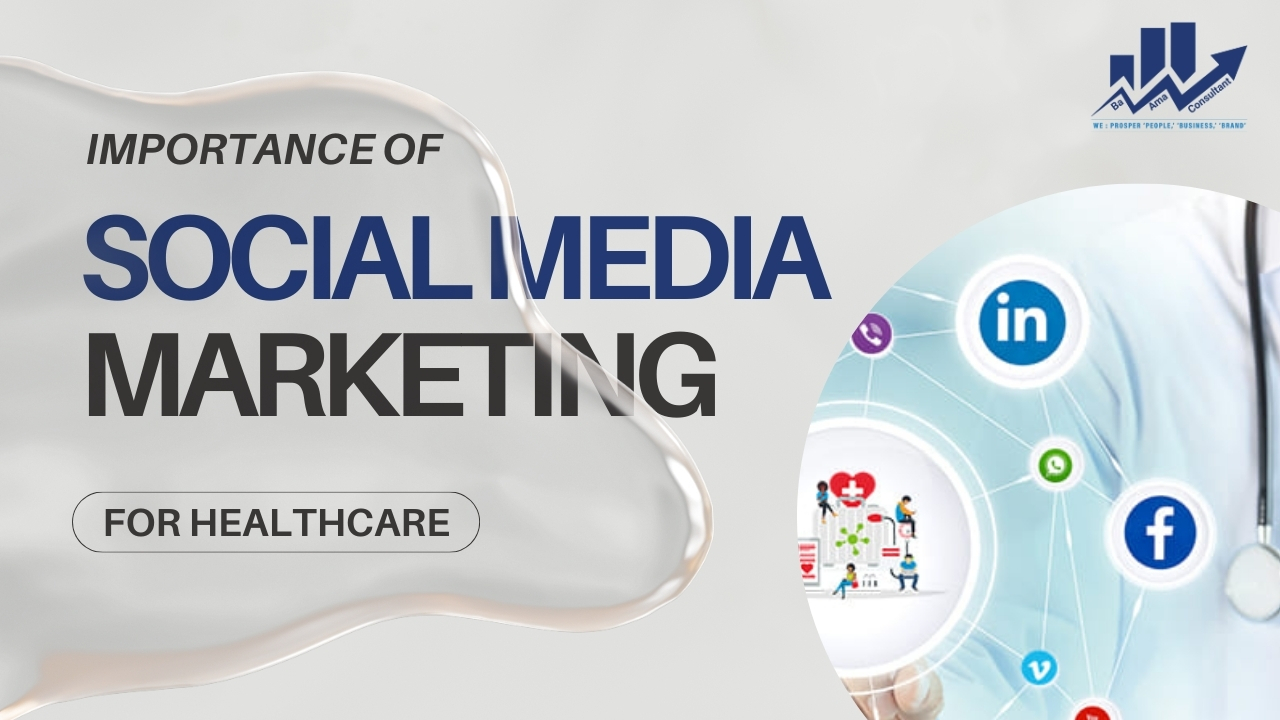In the ever-evolving digital world, healthcare providers are recognizing the importance of social media marketing for healthcare. From hospitals and clinics to individual doctors, leveraging social media platforms is now crucial for connecting with patients, building trust, and driving engagement. With millions of users actively participating in social media, it has become a powerful tool for healthcare digital marketing, particularly in improving patient outreach and engagement.
1. Expanding Reach Through Social Media
One of the primary benefits of social media marketing for healthcare is its ability to reach a vast audience. With platforms like Facebook, Instagram, and LinkedIn, hospitals, doctors, and clinics can connect directly with patients. This is especially important for healthcare providers in rural areas who want to make their services more accessible to a broader community. Targeted posts and ads enable healthcare professionals to engage with potential patients and promote services more effectively.
Additionally, healthcare digital marketing allows organizations to share educational content, from preventive health tips to in-depth explanations of medical procedures. This educational approach not only builds credibility but also encourages trust. Patients increasingly turn to social media for health-related information, making it essential for healthcare providers to maintain an active and informative online presence.
2. Building Trust Through Testimonials and Reviews
Trust is a key factor in the healthcare sector, and social media can play a pivotal role in building and maintaining that trust. Sharing patient testimonials and reviews across social media platforms is an effective way for hospitals and clinics to humanize their services. By showcasing real-life patient success stories, healthcare organizations can attract new patients while reinforcing their credibility and expertise.
In healthcare social media marketing, the impact of positive testimonials cannot be understated. A patient’s recommendation on Facebook or a glowing review on Google can carry significant weight in influencing others’ healthcare decisions. This type of social proof is critical for healthcare digital marketing, especially for clinics and doctors looking to expand their patient base.
3. Promoting Health Awareness Campaigns
Another major benefit of social media marketing for healthcare is the ability to run targeted health awareness campaigns. Whether promoting vaccinations, raising awareness about disease prevention, or addressing mental health, social media allows healthcare providers to spread important public health messages. Hospitals and clinics can utilize platforms like Instagram and Twitter to run campaigns that target specific demographics or health issues.
For example, during global health crises like the COVID-19 pandemic, healthcare organizations worldwide turned to social media to disseminate essential information quickly. In this regard, social media for hospitals, doctors, and clinics becomes more than a marketing tool—it becomes a vital communication channel for health advocacy and education.
4. Engaging Patients with Interactive Content
Healthcare social media marketing thrives on interaction. Hospitals and clinics can use platforms to engage patients through live Q&A sessions, webinars, and informative videos. For instance, a clinic can host live events on Facebook or Instagram where healthcare professionals answer patient queries in real-time, providing immediate value and fostering stronger patient relationships.
Interactive engagement not only educates patients but also enhances loyalty. Doctors can also use social media to conduct polls, surveys, and discussions, making patients feel more connected and involved in their healthcare journey. This form of direct engagement is a key element of successful social media marketing for healthcare.
5. Leveraging Data for Targeted Healthcare Digital Marketing
Data is essential for refining and optimizing social media marketing efforts. Through analytics tools available on platforms like Facebook and Instagram, healthcare providers can track patient engagement, monitor campaign performance, and understand audience behavior. This datadriven approach is critical for healthcare digital marketing, enabling providers to continuously improve their social media strategies.
Hospitals and clinics can identify what type of content resonates best with their audience— whether it’s educational articles, patient testimonials, or health tips. By focusing on what works, healthcare organizations can maximize their return on investment (ROI) and improve patient outreach, ultimately boosting the effectiveness of their social media efforts.
Conclusion
For healthcare providers, the importance of social media marketing for healthcare cannot be overstated. From improving patient engagement to enhancing brand trust, social media for hospitals, doctors, and clinics offers an unparalleled opportunity to connect with patients and promote healthcare services. By embracing the full potential of healthcare social media marketing and adopting data-driven strategies, healthcare organizations can make a significant impact on patient care and community health.

